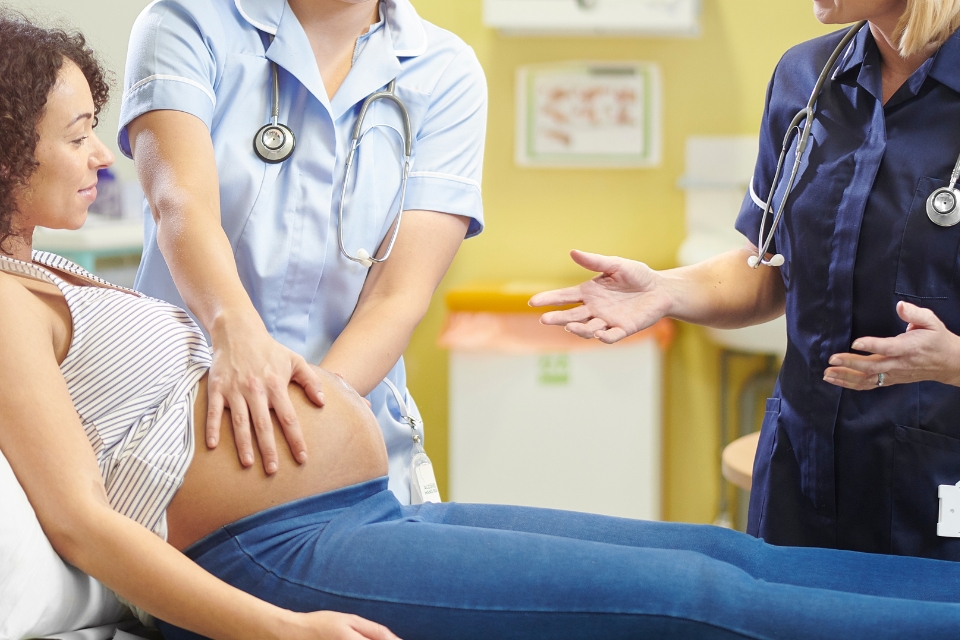Recently the research team of Ellen Thaels, Research Associate, Dr Claire Feeley, Lead Applicant, both King’s College London and Prof Soo Downe, Joint Lead Applicant, University of Central Lancashire launched a new study around high-quality maternity care, the BEACON project. We share here details of the study and what it aims to achieve.
______________________________________________________
Recently, a research team announced the launch of a new study – the BEACON project that officially started on the 2nd of September. This NIHR funded project, led by Dr Claire Feeley, King’s College London and Prof Soo Downe, University of Central Lancashire will focus on asking different questions to help drive the urgently needed improvements to maternity care. The project is called ‘Learning from Beacon Sites for optimal maternity care: A Safety I/Safety II approach’ and here we reshare an overview of the study, why it is important and what work will be carried out by the research team.
Filling the knowledge gap
High-quality maternity services must provide safe, respectful care, that meets the needs of mothers and babies, delivered by skilled staff who are committed to positive experiences. However, although we all think we mean the same thing when we talk about quality in maternity care, recent research suggests that underlying ideas about what defines ‘quality’ maternity care differs between different people and professions.
Over the years, public inquiries into maternity care in England have identified safety issues in some services, with recommendations focused on learning from mistakes (e.g. investigations into units in Shrewsbury and Telford and East Kent). A recently published prominent example of this is the BBC news reporting ‘Harm at risk of being normalised in maternity care’, reporting on the findings of a Care Quality Commission review of 131 units across NHS. Once again persistent failings in maternity services were highlighted. But an exclusive focus on what goes wrong may overlook valuable lessons from positive experiences and what goes right.
The research team therefore decided to adopt what has been called the ‘Safety II’ approach, to learn from both successes and failures, as the basis for designing improvements that enhance the quality and safety of maternity services. For all stakeholders involved, the implementation of a clear and shared vision about what goes well is urgent and necessary for women/people, babies, families, and the staff providing the service to thrive.
To build on existing work, an initial rapid scoping review was undertaken, and a definition of high-performing maternity units was drafted. The definition includes four main characteristics which are: lower incidences of complications/adverse clinical and psychological outcomes; higher levels of wellbeing for women or birthing people; higher levels of staff wellbeing; optimal use of resources through appropriate use of procedures.
We want to find high-performing maternity units and to understand factors that contribute to their success. To do this, we will first carry out public and staff focus groups and work with a stakeholder group to explore experiences of those using or working within safe, high quality maternity services. The main focus will be to uncover what drives these positive factors as related to the four main characteristics and how they can best be measured – also known as ‘what works for who, in what circumstances and how.’ . By analysing existing evidence and developing a comprehensive assessment tool, we aim to identify ‘Beacon’ Sites for further study and ultimately apply the lessons learned to improve maternity care nationwide.
Developmental work plan
In the next 15 months, the initial stages of this project will be taking place. First, a public and service user stakeholder engagement strategy will be set up. The team is committed to outreach and to include people who are often underrepresented. Next, the existing evidence will be identified and collated to find out what other researchers have uncovered on what works and why in maternity units. The knowledge from the literature and stakeholders will be used as the foundation to explain what works and why, and to develop an assessment tool which can identify high-performing maternity units. Lastly, another research study will be designed using the information gathered to apply for further grant funding to investigate what works in high performing ‘Beacon sites’, and how their successes can be translated to other maternity units.
To explore getting involved and/or if you want to stay up to date with our progress, please sign up here. Find out more about the members of our diverse and multidisciplinary research team here.
This study/project is funded by the National Institute for Health and Care Research (NIHR) Programme Grants for Applied Research (PGfAR) (PDG – NIHR206404). The views expressed are those of the author(s) and not necessarily those of the NIHR or the Department of Health and Social Care.
October 2024


